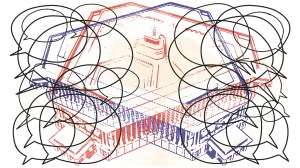Sterlite demerges telecom business
MUMBAI, APR 4: Continuing the saga of merging and demerging its businesses, Sterlite Industries has once again demerged its telecom busine...

MUMBAI, APR 4: Continuing the saga of merging and demerging its businesses, Sterlite Industries has once again demerged its telecom business into a separate company and decided to merge Madras Aluminium Company Malco with itself.
The company demerged its cable business in 1995 from the copper business and again merged the same in April 1996 after one and a half year of demerger. During this one and half year, the company made a public issue in new company Sterlite Communication SCL at a huge premium of Rs 90 per share. However, the new company has a very short existance as it was merged again with Sterlite Industries SIL. Now again after five years, Sterlite has demerged this business.
Sterlite chairman Anil Agarwal now says the company has also decided not to undertake any greenfield aluminium project in future while keeping the recently acquired Calcutta-based India Foils as a separate subsidiary company for the time being. 8220;The merger of India foils into Sterlite could be revised at a later date,8221; he said.
When the business was demerged five years back, the management then justified its stand on the basis that hiving off these activities into a separate company would facilitate renewed and focussed attention on the high growth areas. However, barely one and half year later, the management decided to merge SCL with SIL quot;in order to achieve integration of all related business and operational economicsquot;. But now again when they intend to hive off business into a separate company, as they find it difficult to answer the same reason repeatedly and now say that this was being done on recommendation of Arthur Andersen.
8220;Our consolidation programme would lead us to become a dominant non-ferrous mining and metals company with a turnover of over Rs 2,400 crore during the current year with 20 per cent return on capital employed,8221; he said. The company had Arthur Andersen to review its telecom, copper, and aluminium operations and make suggestions so that the company can leverage its existing strengths and enhance shareholder value.
The consultancy firm had recommended divestment of Sterlite8217;s Rs 109 crore paper project which has now been spun off into a separate subsidiary, Agarwal said. It has also asked backward integration into mining business by acquiring new mines in India as well as abroad to enhance cash flow.
Agarwal said the company8217;s telecom business would focus on turnkey solutions, network bandwidth and software production in order to become a global leader in optical communication and total solutions provider with an expected turnover of Rs 3,000 crore by the year 2003. The company which is in manufacturing business of optical fibre cables and jelly filled telephone cables, already holds a marketshare of about 35 per cent in domestic market which is likely to grow further following 80-90 per cent growth in domestic demands. 8220;To match the emerging demands from telecom players, Sterlite intends to increase production capacity from three million tonnes to 10 million tonnes in the couple of years,8221; he added.
Similarly, there was a turnaround in copper market where the demand surpassed the production globally. Sterlite has proposed to enhance the production of copper metals by 50 per cent either by improving the capacity of existing plants or by acquisition of low cost plants. The company being an integrated copper player with a domestic market share of around 40 per cent, is now working on reducing the operational cost through expansion of production at a marginal investment of Rs 100 crore.
The company which acquired Malco four years ago, set up a captive power plant of 75 mw in 1997 at a cost of Rs 72 crore. The company will now spin off the power plant into a separate subsidiary and then offer 49 per cent equity holding to outsiders having similar interest. The board has the same consultant for valuation, capital structuring of the new entities, and determine demerger and swap ratios. It has been also mandated for divestment of investment in paper project.
The report will be presented within three weeks and a decision of swap ratios will be taken by a committee of independent directors. Meanwhile, the board recommended an interim dividend of 110 per cent for the financial year 1999-2000, involving a total dividend outgo of around Rs 60.37 crore.
- 01
- 02
- 03
- 04
- 05































